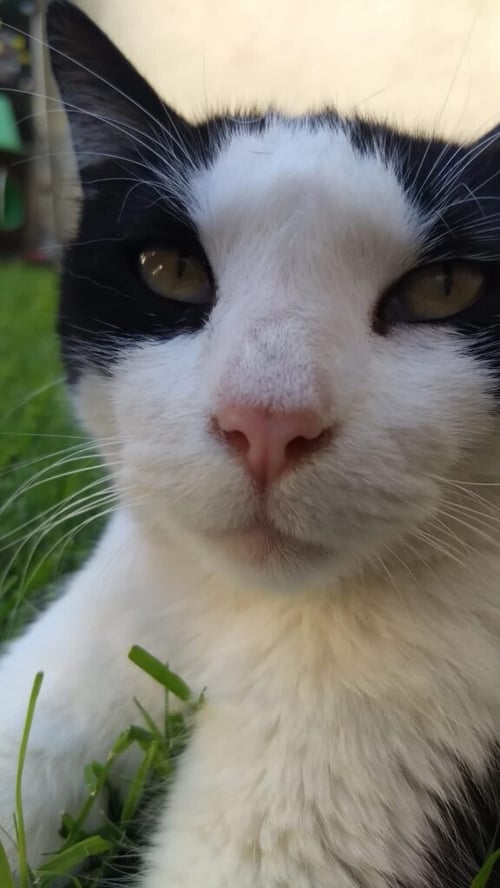From the Mouths of OPI Interpreters
Interpretation - OPI - Translation - The more you know - Over the phone interpreting - Food for thought

Over the phone interpreting (OPI) has become a critical life-line for many during the last few years of the pandemic. This easy to use and straightforward communication access method can pair most any language combination for an individual with a qualified interpreter via telephone.
We sat down with 3 of our Ad Astra over the phone interpreter superstars to learn more about them and their work.
Tune in below to hear straight from the mouths of OPI interpreters and what they love about it.
Let’s meet Macarena, Camila, and Florencia!

Name: Macarena Tabernero
Location: Córdoba, Argentina
Role: Ad Astra Internal Team OPI Interpreter
Tell us about yourself:
Hi everyone! I’m Macarena, a Spanish interpreter and translator. Right now I’m in a beautiful Argentinian province called Córdoba. There are lots of things you cannot miss when here! The landscapes, the food, and the people are unlike any other!
I love traveling and have been lucky to explore more of Argentina and many other countries. Besides traveling, I love meeting new people and learning new cultures. I think that’s the reason why I became so interested in learning a second language, which also encompasses deeply learning about other cultures.

How did you first get into language and communication?
Well, I’ve always loved the English language. I started my English classes at 12 years old or so. Since that time, I’ve always been interested in learning more and more. After I graduated from school, I decided I would go to university to continue my training.
How did you get in to over the phone interpreting?
I got into over the phone interpretation because I’d heard it’s a great job if you love helping people and were bilingual. A family member and a friend of mine recommended I try it out.

What appeals to you about it?
I love that you’re constantly in direct interaction with native English speakers, which is something that doesn’t happen in say the translation industry – or at least not so often. You’re constantly learning and enriching your vocabulary and general knowledge as you interpret countless conversations throughout the day.
I also like the fact that you can do it remotely, with your pajama bottoms on and you don’t have to commute every day! This one is important to me because I am not a morning person.
What kind of personality and attitude makes for a good OPI interpreter?
I think for someone to be an effective over the phone interpreter, you have to be respectful, patient and impartial. You may encounter difficult situations in which it is very important that the interpreter renders an unbiased interpretation. Don’t forget you are dealing with people! Therefore, it is very important to have a “cheerful” tone of voice when first interacting; you can’t sound rude!
What challenges does the work present?
I think that the work of an interpreter will always present challenges. I mentioned before that one of the things I like the most about being an OPI interpreter is the fact that you are constantly learning new vocabulary, which at the same time is very challenging. It is part of the work of an interpreter to do their research about certain topics, know the different resources you can consult like dictionaries etc., and be prepared to reference them when needed. You may encounter more demanding work like legal or even medical situations, so it’s important to be prepared!
What advice do you have for new OPI interpreters or people interested in the field?
You have to love language and people and most importantly be armed with good resources! Then you’ll be sure to enjoy it!

Name: Camila Lagos
Location: Patagonia, Argentina
Role: Ad Astra Internal Team Translator
Tell us about yourself:
Hello! I’m Cami. I’m from Patagonia, Argentina but am currently settled down in Thailand. My biggest passion is to be on the move visiting new places and exploring new cultures.
How did you first get into language and communication?
I first got in contact with foreign languages when I was a 4 or 5-year-old as a kid living in Buenos Aires.
My family and I were spending a day out and about out and I recall hearing people speaking “nicely weird”. My Mom explained that what those people were speaking was another language, English. I remember that my first question was, is English the same as Spanish but spoken backwards? My Mom laughed and she explained a little bit of history.
After that, the questions came one after the other like – why don’t people speak just one language in the whole world so we can understand each other wherever we are? The late 90’s and early 2000’s were hard times in Argentina and my family was not able to afford to send me to an English Academy. So, my first steps on learning a new language were self-taught, like a game where I practiced on my own. It wasn’t until university that I was able to formally start an academic level language learning and study to become a certified translator. Best decision ever!
How did you first get into language and communication?
I first got in to over the phone interpreting during the start of the COVID-19 pandemic. The request for OPI services skyrocketed during the pandemic and it was a niche worth exploring given my language training, the national restrictions, and the overall situation.
How did you get in to over the phone interpreting?
I first got into OPI during the COVID-19 pandemic. Requests for OPI services skyrocketed during the pandemic and it was a niche worth exploring given the restrictions and the overall situation.
What appeals to you about it?
What I like most about OPI is that it’s a very simple canal for communication and interpretation. It’s boils down to a a person needing a quick, reliable and accurate interpretation right through the phone! Also, it allows me to work from virtually anywhere and as a chronic traveler… that’s beyond great for me!
What kind of personality and attitude makes for a good OPI interpreter?
I think that customer-service oriented skills are of the utmost importance. Providing good quality of service in all aspects is, in my opinion the key to being a successful OPI interpreter.
What challenges does the work present?
As in all service jobs, there will be problems. Often times you interface with a dissatisfied or frustrated consumer. Also sensitive topics might have to be handled during the interpretation. But all challenges can be sorted with patience and understanding. We have to fall back on our professional training when handling these kinds of situations.
What advice do you have for new OPI interpreters or people interested in the field?
My advice is to stick to the protocol you’re given and rehearse the “fixed” questions, expressions and vocabulary that appear over and over again in structured calls. Train you short term memory and your note-taking skills so you can fully trust them. And lastly, try to always use your best “I’m-having-a-good-day” voice.

Name: Florencia Rodriguez
Location: Río Negro, Argentina
Role: Ad Astra Internal Team Translator
Tell us about yourself:
Hello everyone, a pleasure chatting! My name is Florencia and I am from the far south province of Río Negro, Argentina (don’t miss the amazing pictures below). What can I tell you about me? Well, I am an English-Spanish Translator and Interpreter, and also a dance teacher.
I have a lovely dog who swears they are a baby and acts like one. We love travelling and going to the beach. We are water lovers! Besides this, I am learning American Sign Language so I can bring even more comprehensive services and continue my understanding of languages.

How did you first get into language and communication?
I started learning English when I was 12 years old. There was an amazing institute in my town, so I started taking classes there. Then as I grew older, I found more passion for the language through movies and TV series. I love the language – the different translations, subtitles and voices over. I love the fact that there sooo many possible translations for only one phrase.
So, I went to university and studied to become a translator. In a convention there, I met a very famous translator and subtitler and he invited me to specialize and train in subtitling. So, I took a 6-month-intensive course and learned a lot of different strategies and programs related to the field. And right now, I have been focusing a lot more on interpreting, which is a very different area. So, I can say that I am getting into all the fields of language services and I love it!.
How did you get in to over the phone interpreting?
I knew the company thanks to LinkedIn. I started working as a freelance translator with the team and after some months I luckily got into a fantastic OPI role.
What appeals to you about it?
Apart from the fact that we are constantly in touch with native speakers, I love meeting new people and hearing about so many interesting jobs. We work with different professionals, from teachers to therapists. And you can’t even imagine how much we learn every day! We learn new things related to the language, but also about life in general.
What kind of personality and attitude makes for a good OPI interpreter?
I think that a good OPI interpreter must be patient and attentive. We must always remember that behind the phone there is person with a problem that needs to be solved. So, I believe that we should always be kind and comprehensive in our service offering. Apart from this, a good OPI interpreter must train her memory. At the beginning, it may be a bit hard to remember everything, but with time, good note taking and perseverance, it is possible!
What challenges does the work present?
One of the most challenging things about OPI is when a frustrated client is angry or starts yelling. As interpreters, we must be impartial. So we can’t tell the client how to behave or speak rudely to them. These cases are difficult to handle, but with time you get used to them. You have to be patient and gently request they slow down so you can better assist them.
Another tough challenge is when there is bad news you have to deliver to the person on the call. This may be hard, but you also get used to it with time. The last big hiccup is that of technical issues! Sometimes the client might be speaking way too quietly or we struggle to hear them. A simple request to speak louder for clarity can usually fix this one.
What advice do you have for new OPI interpreters or people interested in the field?
My advice would be to enjoy it! Most people don’t have this opportunity, so I consider us fortunate. We have the opportunity to be directly in contact with native English speakers, so we must take advantage of that opportunity to hear new dialects, slang, and other things. So, if you are new in the field, prepare you notes, headsets and start the adventure, you won’t regret, I promise.









